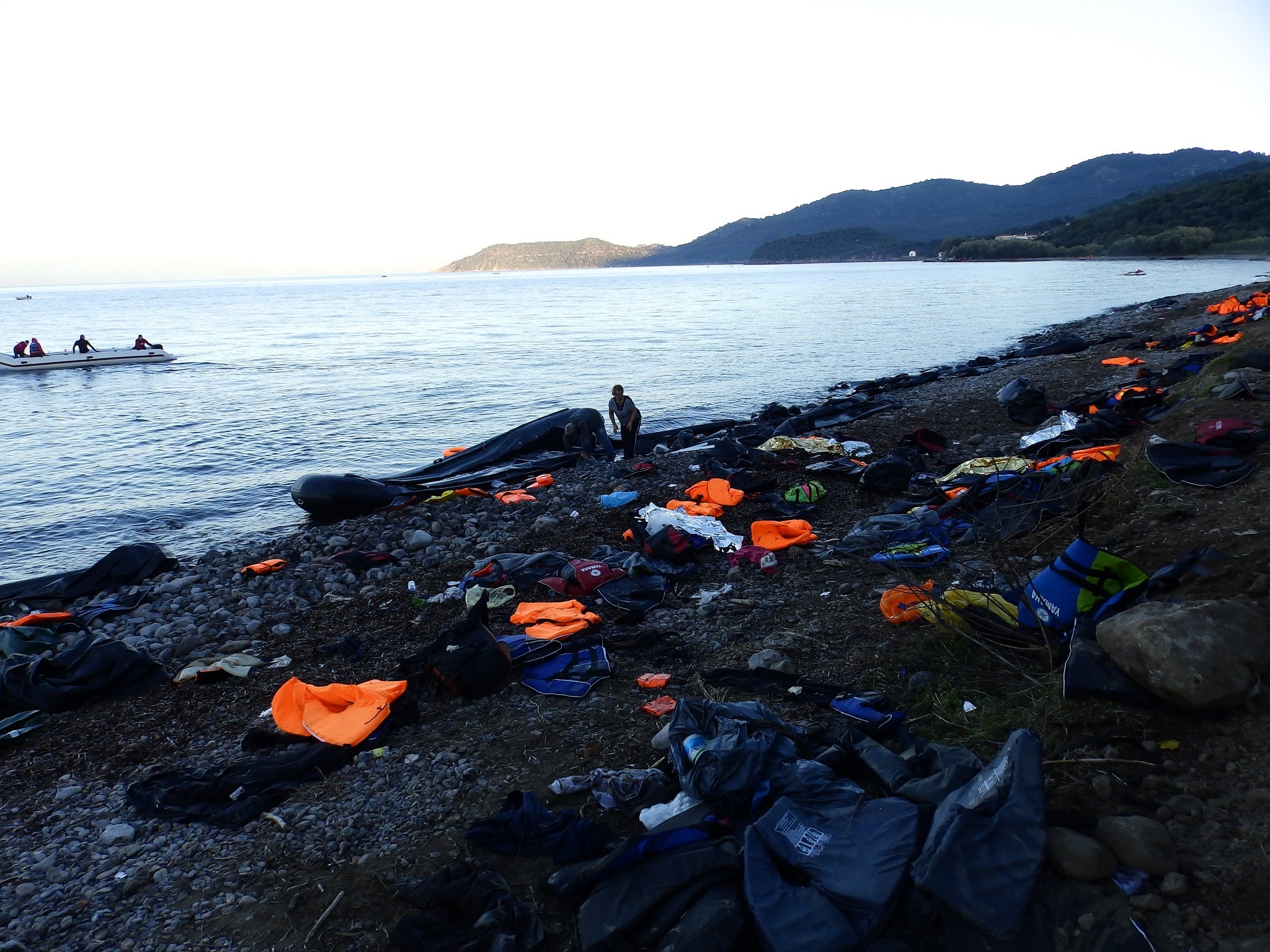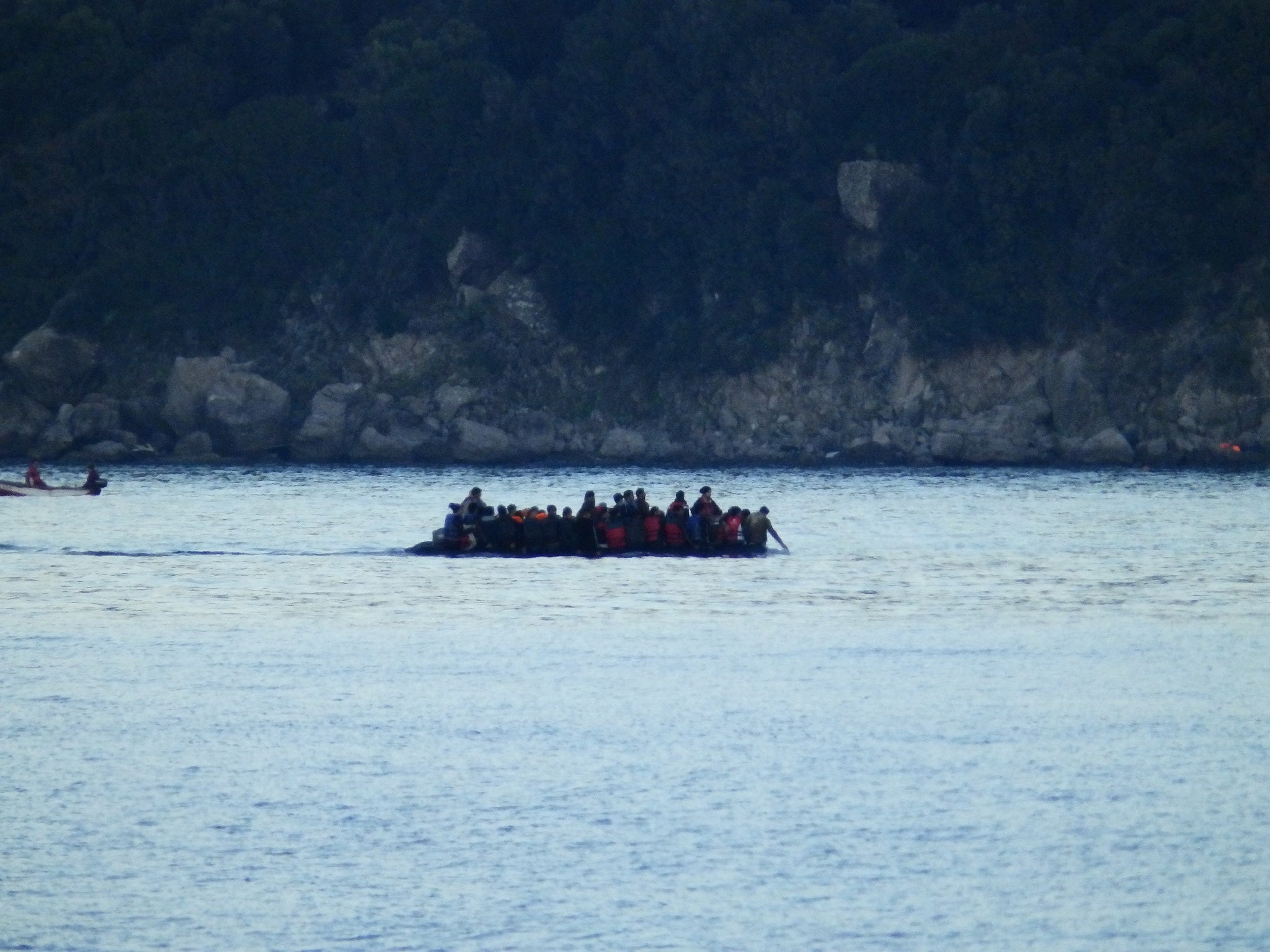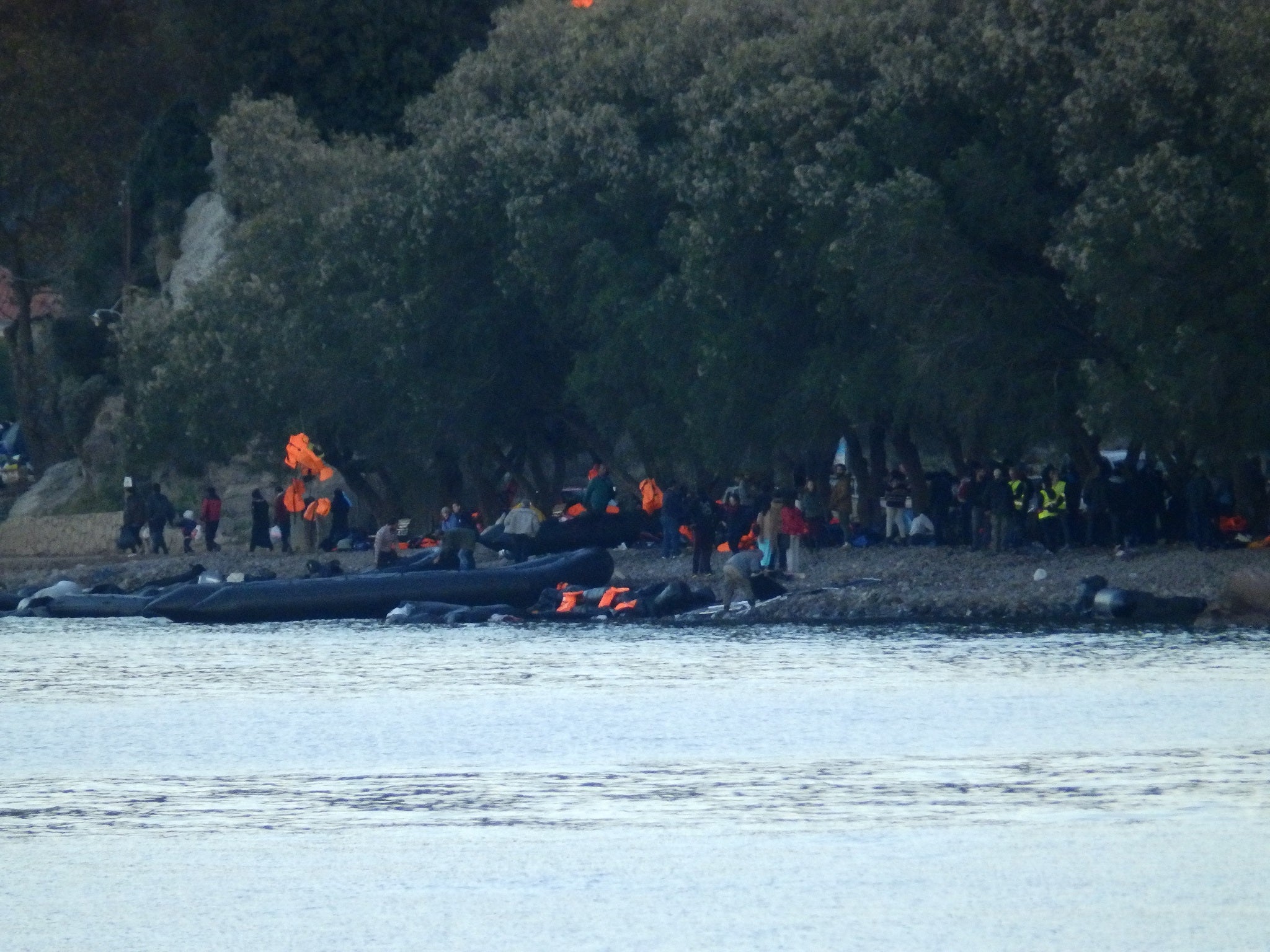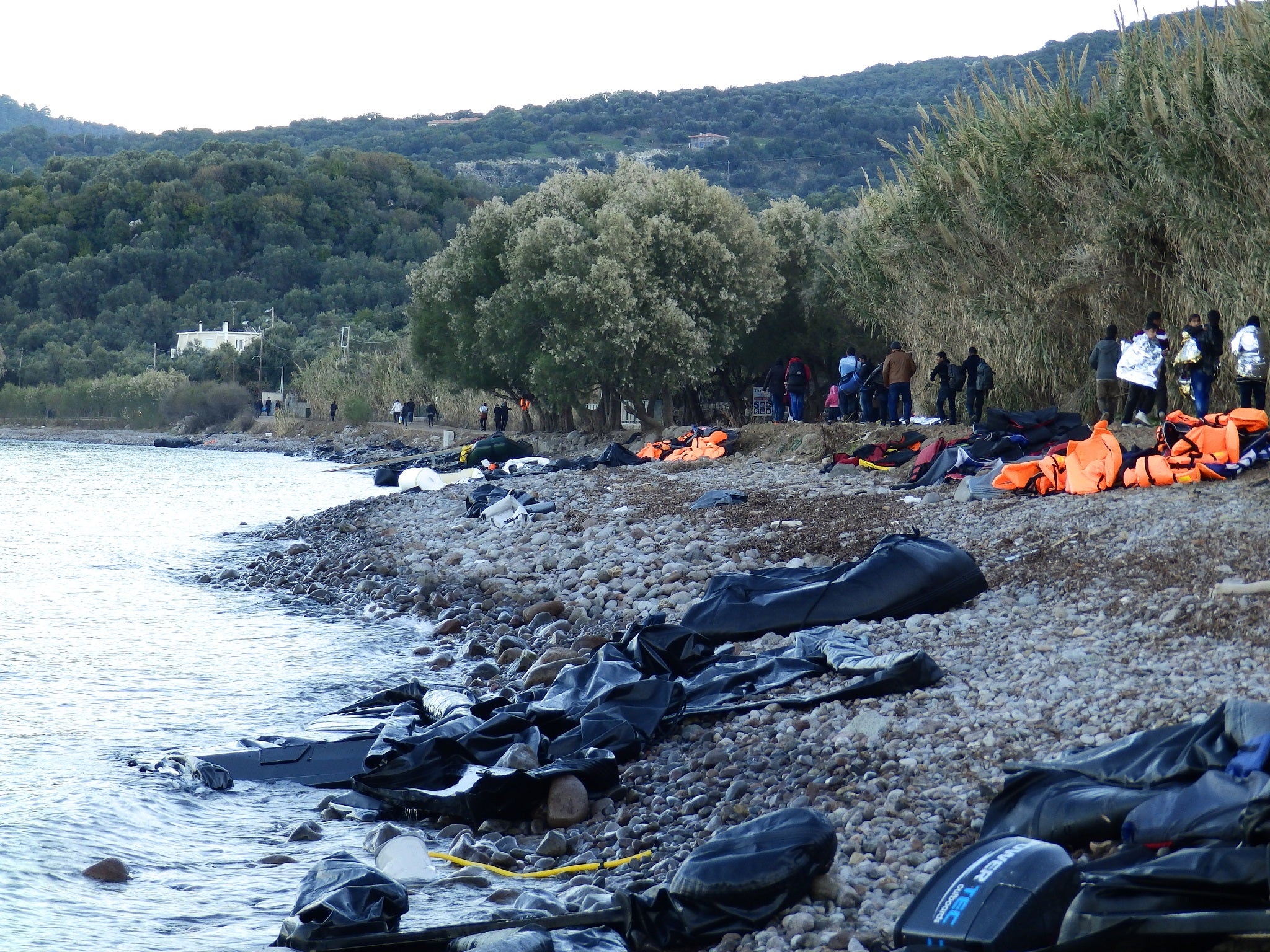Video shows babies being brought ashore in refugee boat after at least three more children drown off Lesbos
The Independent witnessed dramatic scenes as several refugee boats landed on the Greek island
Your support helps us to tell the story
From reproductive rights to climate change to Big Tech, The Independent is on the ground when the story is developing. Whether it's investigating the financials of Elon Musk's pro-Trump PAC or producing our latest documentary, 'The A Word', which shines a light on the American women fighting for reproductive rights, we know how important it is to parse out the facts from the messaging.
At such a critical moment in US history, we need reporters on the ground. Your donation allows us to keep sending journalists to speak to both sides of the story.
The Independent is trusted by Americans across the entire political spectrum. And unlike many other quality news outlets, we choose not to lock Americans out of our reporting and analysis with paywalls. We believe quality journalism should be available to everyone, paid for by those who can afford it.
Your support makes all the difference.The beaches lining the north cost of Lesbos were until recently known for their beauty and seclusion, drawing thousands of tourists every year.
Now, they are the landing site for thousands of refugees and the final resting place for those who do not survive the voyage across the Aegean Sea from Turkey.
Evidence of the crisis can be seen even from the air, with bright orange life jackets standing in stark contrast to the grey pebbles and olive groves lining the shore.

In Molyvos, on the Greek island's north coast, the beaches have become almost buried under sunken dinghies, inflatables, clothes, shoes and detritus left by desperate rescue operations.
It was hoped that, as in previous years, migration would drop off as the autumn closed in and made the journey ever more treacherous, but with conflict continuing to rage in Syria and across the Middle East, numbers have shown no sign of slowing.
Wednesday dawned bright and sunny, leading human smugglers to jump at the opportunity to force their human cargo to leave the Turkish coast in waves of small inflatable boats that continued throughout the day, making landfall wherever they could.
With refugees forced to guide the boats themselves often with no experience or knowledge, the vessels' paths are haphazard and unpredictable, causing rescuers and volunteers to patrol up and down the coast to help the latest arrivals.
The Independent chanced upon one such landing in Efthalou, rounding the corner as volunteers attempted to guide in a dinghy packed with up to 50 mainly Syrian refugees, including babies and elderly women.

Even as it neared the shore, the same scene could be seen repeating itself again and again up and down the coast as another dinghy landed just a few hundred metres along the beach and another headed slightly to the west.
Children started screaming as the vessel began to rock in the shallows while Spanish volunteers, Save the Children and other charities and volunteers waded in to carry them ashore.
Entire families disembarked in the desperate scramble to land, soaking wet and shivering as the temperature plummeted with the fading sun.

One father wrapped his newborn baby in a foil blanket, while other families desperately rubbed and hugged their pale and shivering children to stop them succumbing to hypothermia.
Several people were lying prone on the ground, unresponsive and unable to move, with the worst cases being carried into volunteers' cars so they could be warmed by the heaters.
“Where is my baby?” one woman screamed in Arabic after becoming separated from her child in the chaos. He was found safe in the hands of a volunteer before the family were reunited to continue their journey.
All the passengers on that vessel survived but the bodies of three children and two men were recovered overnight after more than 450 people were rescued in 13 coast guard operations over the previous 24 hours.
Less than half an hour after the dinghy reached land, all that was left was the slowly deflating vessel, another mound of discarded life jackets and first aid blankets waving in the breeze.

Many of the refugees had been ferried by volunteers to the nearest transit camp and others had started the long uphill journey on foot to reach buses to take them to the island's registration centres.
The majority of those who arrived will be heading to temporary refugee camps in the hope of a quick transfer on to the Greek government's ferries to the mainland, where they can continue through the Balkans to reach Western Europe.
But with no ferries running from Lesbos' main port during a strike that started on Monday, numbers were swelling at the camps and in the harbour, where stranded families were sleeping with no shelter on the pavements and in roads.
The island has been the main arrival point for more than 600,000 refugees and migrants reaching Europe so far this year.
Kate O'Sullivan, who works with Save the Children at the Kara Tepe refugee camp, said “really horrific” weather conditions would not stop smugglers forcing asylum seekers across the Aegean and urged the European Union to unite in its response.
“Children have been arriving with blue hands, blue feet - there have been people collapsing with hypothermia,” she added.
”I know the parents are taking huge risks but they're doing it for their families. It's not a choice for them to flee warzones and come here - it's a choice how we respond.
“Every last child who died didn't have to die and every last child who will die over this winter didn't have to die either.”
